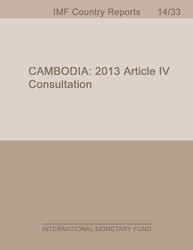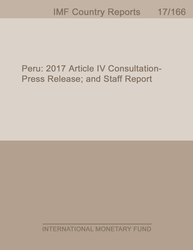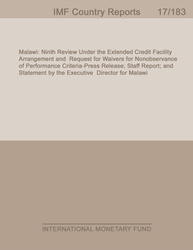
Cambodia: Staff Report for the 2013 Article IV Consultation
KEY ISSUESContext. Growth remains strong driven by robust exports, tourism, and construction,despite the recent floods and some slowdown during the 2013 national election. Theoutlook is favorable with renewed reform momentum after the elections but slowgrowth in Europe, the U.S. tapering, further extreme weather conditions, and sustainedlabor market instability continue to pose downside risks, while rapid credit growth andrenewed pressure on deposits could undermine financial stability. The authorities havecontinued to implement past staff recommendations, including mobilizing domesticrevenue, taking steps to strengthen monetary policy effectiveness, and implementingsome of the 2010 Financial Sector Assessment Program (FSAP) recommendations.Maintaining the momentum of fiscal consolidation. The fiscal position has improveddriven by strong revenue performance. Fiscal consolidation should continue to rebuildgovernment deposits?the only fiscal buffers?in view of the expected decline in grants,including by making the planned wage increases in 2014 a part of a broader civil servicereform. Implementing the revenue mobilization strategy, better managing contingentliabilities, and continuing to reform public financial management are critical to rebuildand safeguard the fiscal space.Containing macro financial risks and improving monetary policy effectiveness.Inflation is expected to remain low, but rapid credit growth, increasing bank flows fromabroad, and the buoyancy of the real estate and construction sectors pose macrofinancialrisks. In light of recent deposit withdrawals, strengthening liquidity riskmanagement is a priority. Containing credit growth including by expanding the base ofthe reserve requirements?the only monetary policy tool?once deposits stabilize, andbetter monitoring of real estate developments are needed to contain risks. Developinginterbank and foreign exchange markets is necessary to enhance effectiveness ofmonetary policy operations, help reduce dollarization and allow for greater exchangerate flexibility. Further strengthening banking supervision and regulatory framework, andestablishing a crisis management framework are also needed to maintain the stability ofa rapidly changing financial sector.Promoting economic diversification and inclusive growth. Continued improvementin human capital, including through education and training, infrastructure, and businessclimate, as well as further reductions in poverty and inequality, are essential forsustainable and inclusive growth.
Publication date: February 2014
ISBN: 9781475566451
$18.00
Add to Cart by clicking price of the language and format you'd like to purchase
Available Languages and Formats
| English |
Prices in red indicate formats that are not yet available but are forthcoming.
Topics covered in this book
This title contains information about the following subjects.
Click on a subject if you would like to see other titles with the same subjects.
Money and Monetary Policy , International - Economics , Public Policy ,
Also of interest
Summary
Copyright © 2010 - 2024
Powered by:
AIDC



